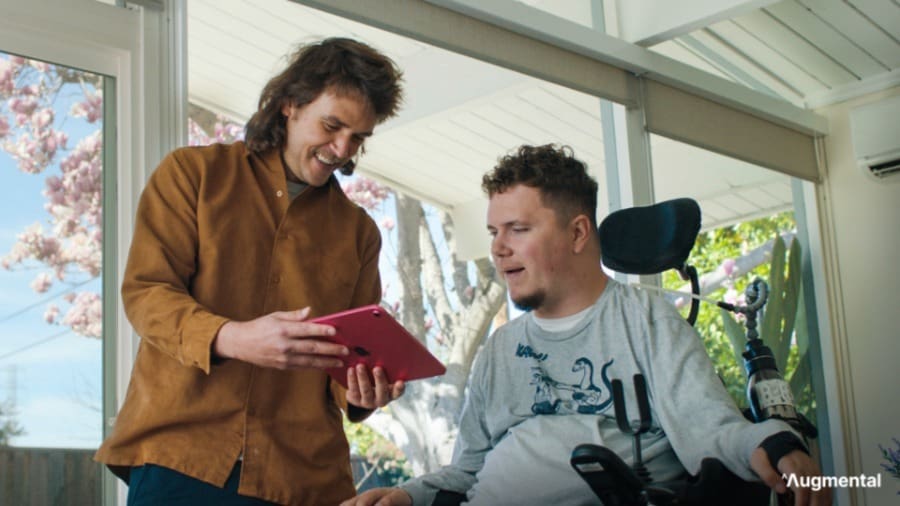Video: Pioneering tongue-controlled interface makes hands-free device use more inclusive

MouthPad is a “ground-breaking” new interface that allows people to control devices purely through the movement of their tongue.
The assistive hands-free device could be used by people with limited dexterity or reduced mobility to use computers and other digital products more accessibly.
MouthPad has been created by MIT Media Lab spinoff Augmental. This hardware startup focuses on creating human-first experiences that enhance everyday interactions with digital devices and interfaces.
Designed to allow users to speak freely and perform other actions in parallel, MouthPad is complementary to alternative technology, such as voice control, enabling people to seamlessly switch between tongue-driven screen navigation and speech without the need for surgery.
The device converts the user’s tongue position and pressure into cursor actions by processing signals through a machine-learning algorithm inside its processor. The commands are then sent via Bluetooth to the connected device and translated into cursor movements and clicks, allowing the user to do everything from sending an email or turning on the lights to editing a photo or playing a video game.
Each device is fully personalised to the user through a process of intra-oral scanning that generates a 3D model of the mouth. Using this model, a custom device is designed and printed with dental resin.
This perfectly fits the individual’s mouth and encapsulates a flexible circuit board with sensors, a processing unit, and a Bluetooth radio, which are all sealed in a watertight casing with an innovative technique to protect the electronics from saliva.
MouthPad connects via Bluetooth to iOS and Android smartphones, Windows, Mac, and Linux-based desktop and laptop computers. The product works in parallel with existing accessibility and control features on these devices and within their operating systems.
MouthPad strives to be the next step in controlling digital devices without using hands. Augmental says that current hands-free control devices, such as eye-tracking products, can leave users feeling frustrated, fatigued, and with damage to their teeth. MouthPad is designed to overcome these barriers.
Find out more about MouthPad in the video below:
“As our lives become increasingly intertwined with technology, and the world expands from the physical to the digital, it’s more important than ever to ensure that everyone has equal access to control inputs and new interfaces,” said Tomás Vega, Co-Founder and an engineer at Augmental. “Interactions with these systems must be designed to cater to how humans perceive, process, and act.”
Led by principles of universal design and inclusivity, Augmental launched an R&D programme focusing on the needs of people with limited hand control. By working with the disability community, Augmental gained “invaluable” insights that helped inform the development of the device.
The goal is to scale up MouthPad so that it can be used by the broadest possible audience, allowing people to carry out everyday tasks hands-free and enjoy digital control with greater ease and independence.
Although Augmental is currently only launching a Beta tester programme for the MouthPad in the USA, the firm has confirmed to AT Today that the device will be available in the UK in the future.
Corten Singer, Co-Founder and an engineer at Augmental, added: “Universal design has the power to greatly expand digital access for everyone, not just those lacking mobility. In exploring hands-busy scenarios and contexts in which users have limited hand control, we have developed an in-mouth platform that enables convenient device interaction today, while also setting the stage for a future of more human and less distracting heads-up displays. Our technology should meet us where we are — not the other way around.”
Alongside people with reduced mobility, MouthPad can also be used in a wide range of “hands-busy” settings to enhance productivity and performance, Augmental emphasises. For instance, the device could be used by surgeons, gamers, astronauts, and lab technicians.

